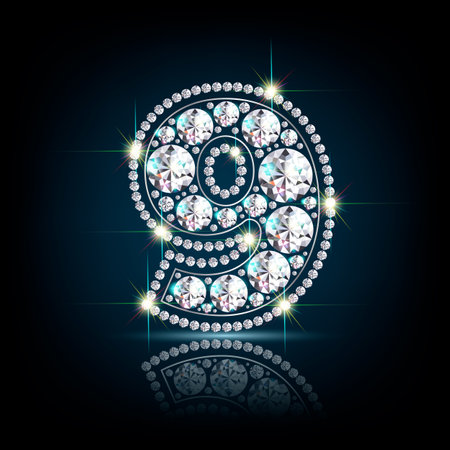Introduction to Energy Healing in the UK
Across the rolling hills of the British countryside and within the vibrant heart of cities like London, a quiet yet profound transformation is taking place. Energy healing, once relegated to the fringes of alternative health, now finds itself woven into the fabric of British wellness culture. From Reiki circles in Yorkshire to crystal therapy sessions in Brighton, these ancient practices are experiencing a remarkable renaissance—fuelled by both curiosity and a collective yearning for holistic wellbeing. While some may still raise an eyebrow at the notion of “healing energy,” a growing number of Britons are exploring these modalities, seeking balance and calm in a world that often feels relentless. Public perceptions remain varied: sceptics cite a lack of scientific consensus, while enthusiasts share stories of personal transformation and renewed vitality. Yet one thing is certain—the conversation around energy healing has shifted from whispers in yoga studios to open dialogue in mainstream health forums. As we begin our exploration into the scientific evidence behind energy healing practices, let us first acknowledge how this gentle revolution is shaping mindsets, wellness routines, and even community connections across the UK.
2. Foundations: What Is Energy Healing?
Imagine a quiet morning in Glastonbury, mist curling around ancient stones, as a small group gathers in the heart of an old chapel. Mary, a local healer, welcomes them with gentle eyes and warm tea. She begins by sharing a story—one passed down through generations—about how healers in her family used hands and intention to soothe pain long before modern medicine arrived. This is not merely folklore; it’s the living foundation of energy healing, woven into Britain’s tapestry from Celtic traditions to contemporary practice.
At its core, energy healing is based on the belief that every person has an invisible life force—or “energy”—that flows through and around the body. Disruptions or imbalances in this flow are thought to contribute to physical or emotional ailments. Healers, using techniques both ancient and new, aim to restore harmony within this subtle field. While the language may shift—from “qi” in Eastern philosophies, to “prana” in yogic texts, or simply “life force” in Western parlance—the underlying theme remains unchanged: when our energy flows freely, we feel whole.
Today in the UK, practices like Reiki, crystal healing, and therapeutic touch have found their place alongside older traditions. Reiki, originally from Japan but now widely taught across Britain, involves the practitioner channelling universal energy through their hands to promote relaxation and healing. Crystal healing uses the vibrational properties of stones—amethyst for calm, rose quartz for love—arranged on or around the body to balance energetic patterns. Therapeutic touch, meanwhile, focuses on smoothing disruptions in the aura without direct physical contact.
| Practice | Origin | Main Tools | Typical Use in the UK |
|---|---|---|---|
| Reiki | Japan | Hands-on/hovering touch | Stress relief, holistic wellness |
| Crystal Healing | Various (global) | Semi-precious stones | Meditation support, emotional healing |
| Therapeutic Touch | North America/Global | Hands (no direct contact) | Pain management, hospital settings |
This blend of spiritual wisdom and practical application is seen throughout British society—from urban wellbeing studios in London to retreats on the Cornish coast. While some approach these modalities with scepticism, others find deep comfort and transformation within their gentle rituals. Regardless of belief, these practices invite us to listen deeply—to ourselves and each other—and recognise that healing often begins where science meets story.

3. Scientific Frameworks: Theories and Hypotheses
When we peel back the layers of energy healing, we enter a fascinating space where science meets ancient wisdom. While many in Britain approach such practices with a healthy dose of scepticism, an increasing number of researchers are exploring scientific frameworks that may underpin these phenomena. Central to these discussions are concepts like quantum biology, electromagnetic fields, and the placebo effect—each offering a unique lens through which to examine energy healing within a modern British scientific context.
Quantum Biology: Bridging Mysticism and Physics
Quantum biology is an emerging field that investigates how quantum mechanics—the science governing the very smallest particles in the universe—might play a role in biological processes. Some scientists speculate that the body’s cells could communicate via quantum signals or subtle energetic interactions. While evidence remains preliminary, British institutions like the University of Oxford have begun probing whether quantum coherence might explain phenomena not easily accounted for by traditional biology. For those drawn to energy healing, this line of inquiry holds promise for bridging intuitive knowing with hard science.
Electromagnetic Fields: The Body’s Subtle Energies
The notion that living organisms generate their own electromagnetic fields is well-established; medical devices like ECGs and EEGs rely on measuring these biofields daily across UK hospitals. Some proponents of energy healing suggest practitioners can sense or influence these subtle energies, promoting balance and wellbeing. Although mainstream science remains cautious, ongoing studies at universities such as Imperial College London are examining whether shifts in electromagnetic patterns correlate with reported healing outcomes. This intersection offers fertile ground for respectful dialogue between healers and British medical professionals.
The Placebo Effect: Power of Belief and Expectation
One cannot ignore the profound influence of the mind on health—a phenomenon known as the placebo effect. Rigorous clinical trials across Britain have repeatedly shown that belief and expectation can initiate real physiological changes, sometimes rivaling conventional treatments. In energy healing research, separating placebo from genuine energetic effects poses a challenge, yet it also highlights the innate healing potential present within every individual. Rather than dismissing placebo as ‘just imagination’, UK-based studies increasingly acknowledge its vital role in holistic healthcare.
Together, these scientific theories invite us to reconsider what is possible when examining energy healing practices through a British lens—encouraging open-minded exploration while upholding rigorous standards of evidence.
4. Key Studies and Findings
When we journey into the scientific exploration of energy healing, the landscape is enriched with landmark research—particularly from British universities and institutions—that brings clarity to both its efficacy and underlying mechanisms. These studies do not merely measure outcomes; they invite us to look deeper into the subtle interplay between mind, body, and energy fields.
Landmark UK-Based Research
One of the most influential studies was conducted at the University of Northampton, where researchers performed a meta-analysis of distant healing trials. Their findings suggested statistically significant positive effects on various health conditions, prompting ongoing debates within the academic community about placebo versus genuine energetic influence. Similarly, King’s College London has explored Reiki’s impact on stress and anxiety in cancer patients, noting measurable reductions in reported symptoms.
Summary of Selected Studies
| Institution | Year | Modality Studied | Main Findings |
|---|---|---|---|
| University of Northampton | 2007 | Distant Healing (Multiple Methods) | Significant improvements in patient outcomes; questions remain regarding mechanism. |
| King’s College London | 2015 | Reiki | Reductions in anxiety and stress among cancer patients noted compared to controls. |
| University of Exeter | 2011 | Therapeutic Touch & Healing Touch | Mild but consistent benefits for chronic pain management observed. |
| NHS Trust Pilot Programmes | 2018–2022 | Integrated Energy Therapy in Palliative Care | Improved subjective well-being and quality of life scores among participants. |
The Mechanisms: Exploring How Energy Healing May Work
Beneath these promising results lies an ongoing inquiry into how energy healing exerts its effects. British neuroscientists have hypothesised that shifts in autonomic nervous system balance—measured by heart rate variability and cortisol levels—may be responsible for the relaxation response triggered by modalities like Reiki or Therapeutic Touch. Some studies also point towards changes in biofield coherence, though this remains a frontier subject requiring further investigation.
A Narrative from Clinical Practice
Anecdotal reports from NHS professionals involved in integrative medicine pilot programmes highlight cases where energy healing complements conventional treatments—patients describe increased vitality and reduced discomfort, especially when traditional interventions reach their limits. Though these stories do not constitute clinical proof, they add a human dimension to the scientific conversation, reminding us that healing unfolds on many levels: physical, emotional, and perhaps even spiritual.
5. Scepticism and Debates in British Society
When it comes to energy healing, the British scientific community is renowned for its healthy scepticism—a quality deeply embedded within UK culture. This scepticism isn’t merely about dismissing alternative therapies; rather, it reflects a commitment to rigorous debate and the pursuit of robust evidence. Across university lecture halls and NHS policy meetings, experts such as Professor Edzard Ernst and organisations like the British Medical Association have voiced concerns about the scientific validity of energy healing claims. Their critiques often centre on the lack of reproducible results in clinical trials and the challenge of distinguishing placebo effects from genuine outcomes.
The debates in Britain extend beyond questions of efficacy. Ethical considerations frequently arise: should the NHS allocate resources towards treatments without a strong evidence base? At what point does patient choice outweigh professional responsibility? These are not just academic questions—they touch on the very soul of British healthcare, where public trust and accountability are paramount.
Integration is another contested issue. Some practitioners advocate for a complementary approach, suggesting that therapies like Reiki or Therapeutic Touch could support conventional treatment, especially in palliative care. Yet, others warn against legitimising practices that have yet to pass through the crucible of scientific scrutiny. The result is a lively, ongoing conversation—one that values open-mindedness but refuses to abandon critical thinking. In true British fashion, this discourse is rarely polarised; instead, it is marked by thoughtful questioning and a readiness to weigh new possibilities against time-honoured standards of proof.
6. Lived Experiences: Personal Narratives from Across Britain
Beyond the clinical trials and academic papers, a tapestry of personal stories weaves through the landscape of energy healing in Britain. These lived experiences, often shared over cups of tea in kitchen nooks or whispered during twilight walks across the Yorkshire moors, offer insights that numbers alone cannot capture.
The London Banker’s Awakening
Take for instance Alice, a London-based banker who sought Reiki after feeling burnt out by her high-pressure job in the City. She recounts, “I went in sceptical—numbers are my language. Yet during the session, I felt a warmth in my chest and an unexpected sense of peace settled over me.” Her experience didn’t just relieve her stress; it shifted her perspective on what wellbeing could mean beyond spreadsheets and deadlines.
A Cornish Healer’s Journey
In Cornwall, Tom, a retired schoolteacher, embraced crystal healing after his wife’s passing. “Grief was a shadow that wouldn’t leave,” he says. “But holding amethyst during meditations gave me comfort—like being held by something greater than myself.” For Tom, energy healing became less about ‘proof’ and more about reconnecting with hope and meaning.
Community Connections in Manchester
Manchester’s vibrant community centres host regular group energy healing circles. Sarah, a single mother of two, shares how attending these gatherings brought her back to herself after years of anxiety: “It wasn’t just about the sessions; it was the sense of belonging, the unspoken understanding among us all. My panic attacks lessened, and I found laughter again.”
Intuitive Wisdom from the Scottish Highlands
High up in the Highlands, Callum describes his experience with sound therapy as deeply spiritual: “The vibrations echoed through my bones—at first startling, then soothing. It felt ancient, like connecting to the land itself.” His story echoes many others who find that energy healing offers a bridge between inner worlds and the wild beauty surrounding them.
These stories from across Britain highlight how energy healing is experienced not just as a set of techniques but as a profound journey into one’s own spirit and emotions. While science seeks patterns and causality, these lived narratives remind us that healing is also an art—a deeply personal transformation often spoken in quiet moments and heartfelt testimonials.
7. Looking Forward: The Future of Energy Healing Research in the UK
As the landscape of healthcare and wellness continues to evolve across the UK, energy healing stands at a fascinating crossroads. The growing interest in holistic approaches, combined with Britain’s rich heritage of both scientific enquiry and spiritual exploration, sets a unique stage for future research. Emerging trends suggest that more people are becoming open to integrating complementary therapies alongside conventional medicine, especially as anecdotal evidence and patient testimonials keep surfacing from all walks of life.
However, there remain substantial challenges for researchers keen to scientifically validate energy healing practices. Traditional scientific methodologies often struggle to measure subtle energies or account for the deeply personal, subjective nature of energetic experiences. This tension calls for innovative research frameworks—ones that honour empirical rigour while respecting the intuitive and spiritual dimensions that underpin energy healing. British scientists may find themselves experimenting with mixed-method approaches, blending quantitative data collection with qualitative insights gleaned from patient stories and practitioner reflections.
Collaboration will be key to moving this field forward. There is an exciting opportunity for synergy between medical professionals, academic researchers, and spiritual communities throughout the UK. Imagine NHS clinics working hand-in-hand with experienced Reiki practitioners or local universities partnering with meditation groups to develop research protocols rooted in both science and lived experience. Such partnerships could help bridge gaps in understanding and foster mutual respect between disciplines that have too often existed in isolation.
The future may also see increasing support from policy-makers and funding bodies as public interest grows and early findings show promise. Initiatives like community-based pilot studies or nationwide surveys on the impact of energy healing could provide valuable data and spark wider conversations within British society about what true holistic wellbeing means.
Ultimately, as we look ahead, it’s clear that the journey towards scientific acceptance for energy healing will require curiosity, open-mindedness, and a willingness to explore uncharted territories together. The UK—with its blend of tradition, innovation, scepticism, and spirituality—is uniquely poised to lead this movement. As science and spirit continue their timeless dance on British soil, we may discover new possibilities not just for healing the body, but for awakening deeper connections within ourselves and our communities.


